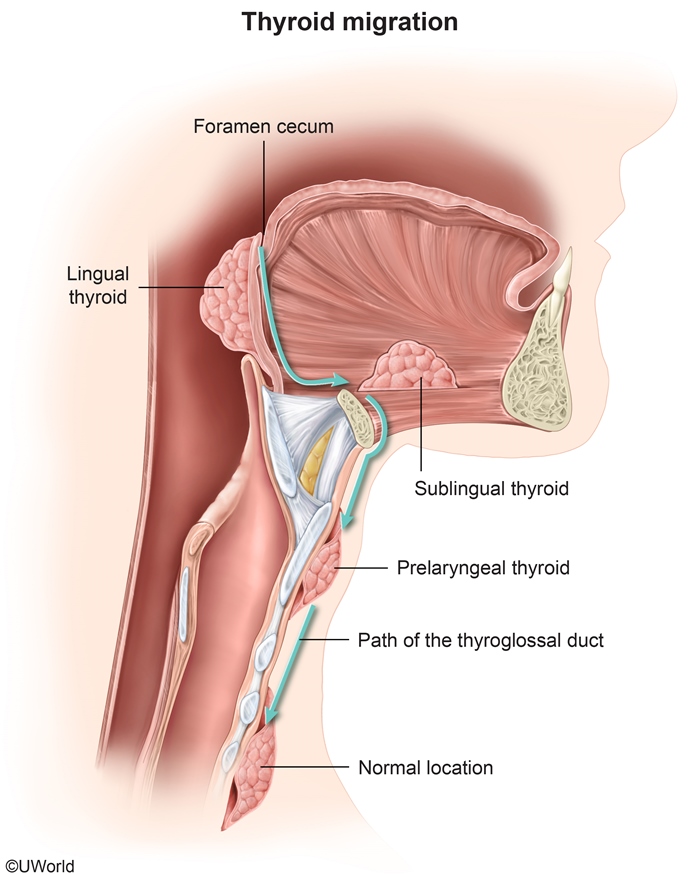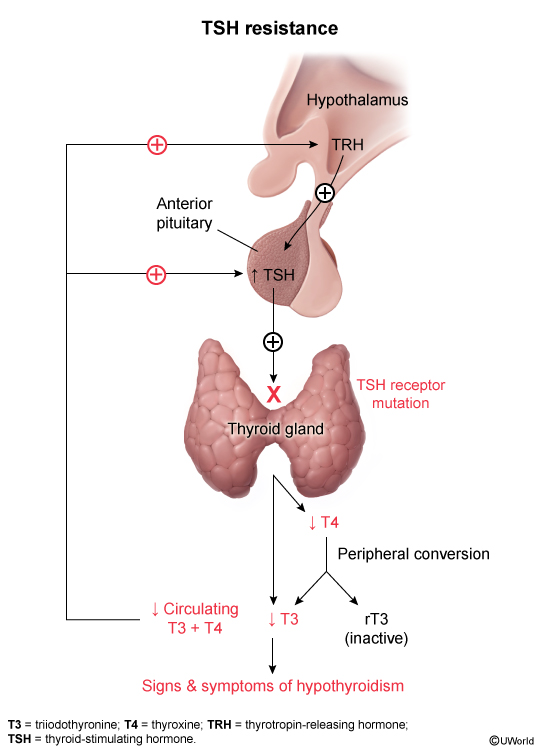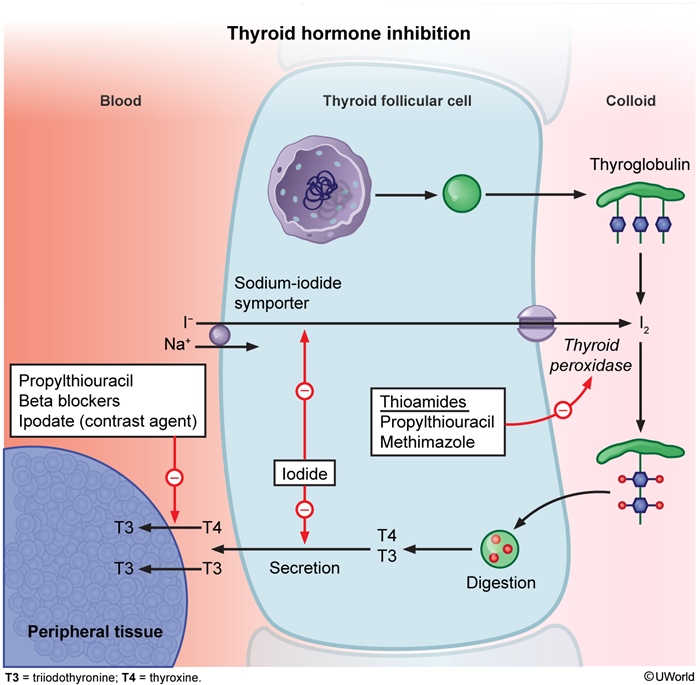Congenital Hypothyroidism
Article Sections
Introduction
Pathogenesis and risk factors
Congenital hypothyroidism can be permanent or transient. Permanent congenital hypothyroidism most commonly occurs due to primary hypothyroidism (most common) or secondary (central) hypothyroidism.
Primary hypothyroidismPrimary hypothyroism is characterized by insufficient thyroid hormone secretion by the thyroid gland due to thyroid dysgenesis (most common), thyroid dyshormonogenesis, or thyroid hormone-stimulating hormone resistance, as follows:
- Thyroid dysgenesis
- Ectopy: In early gestation, the thyroid diverticulum forms in the primitive pharynx and descends to the anterior neck (Figure 1), remaining attached to the tongue by the thyroglossal duct. When this process is disrupted (due to a genetic mutation), the thyroid gland can be located anywhere along the thyroglossal duct, resulting in ectopic thyroid tissue that does not secrete sufficient thyroid hormone.
Continue Learning with UWorld
Get the full Congenital Hypothyroidism article plus rich visuals, real-world cases, and in-depth insights from medical experts, all available through the UWorld Medical Library.
Unlock Full AccessFigures

Figure 1

Figure 2

Figure 3

Figure 4
Tables
Table 1